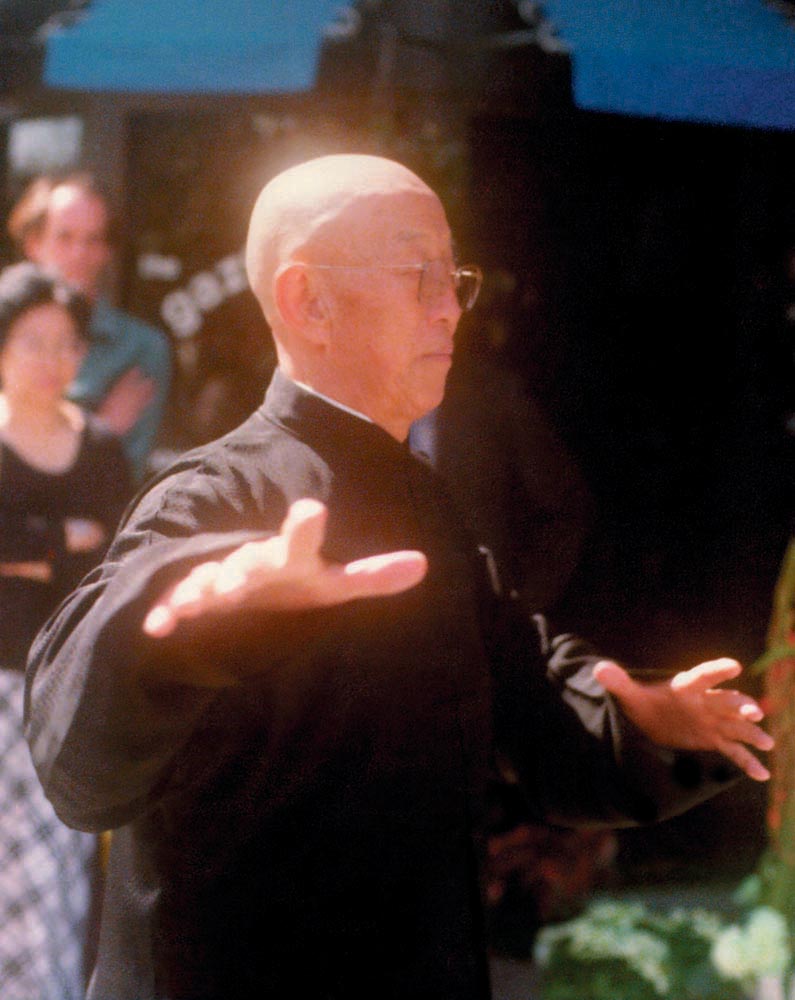
A site honoring the teachings of Kuo Lien Ying and the magical time that we were able to learn from Si Fu
by Kimo LePree
Attentive-Be aware of your surroundings. Be attentive to your opponent.
Balance-Always keep yourself in balance and look for the moments when your opponent is out of balance. Be prepared to act on his unbalance at an instant. Sometimes you may need to make your opponent out of balance.
Calm-One must always remain calm in the most volatile situations. Do not let your anger rise above your waist. If your anger rises above your waist, you become scared and cannot think clearly nor remain in complete control of your emotions not be in balance.
Decisive and Direct-When the moment presents itself, you must be decisive, you cannot be unsure because your advantage will be lost. One only has a small window to act.
You must go directly to your opponent’s unbalance, as in a straight line. At the moment of detecting that unbalance or weakness you must be direct and relentless. You cannot give your opponent a moment to recover.
Evasive-You must be able to move from one movement to the next. You should never try to be an immovable object or the irresistible force. There is no loss of face in evading your opponent’s attack.
Focus-You should be very focused within yourself and let absolutely nothing distract you from being focused. Even when you are focused, you must be flexible to any changes in your opponent or surroundings.
Grounded-One should be so grounded that he or she cannot be uprooted and, yet, in being grounded, flexible enough to change from one place to another such that one maintains an advantage. ©2004 Kimo LePree
Hard-At the right moment you should be hard when attacking. Making the striking blow is the time to be hard.
Instinctive-This is probably the most difficult of the ABC’s. In the infancy, the first level of your training, you will react after your opponent’s attack. Second level: You will react as your opponent attacks. Third level: You will be able to know when and what your opponent will do before he does it. Fourth level: You will know what your opponent will try to do even before he knows what he wants to do. Once you reach the fourth level of instinct, it is highly unlikely that you will ever be defeated.
Judgment and Jeopardize-Judgment and jeopardize are one. You must use good judgment in any situation so you do not jeopardize the advantage that you have over your opponent.
Knowledge-You must call upon and use all the knowledge that you have at your disposal. This is when all the time and energy devoted to study and practice pays off.
Lead-You must sometimes lead your opponent into an unfavorable position of unbalance.
Mastery-You must master yourself before you can become a complete master of your discipline and before you will truly be able to master your opponent in conflict.
Neutralize-When ever possible, neutralize your opponent, even by being nasty. If your person is under attack, your opponent has already become nasty.
Observant-Pay close attention to your inner self, then you will be able to observe your opponent’s every action and non-action. If he has no action then you have no action, you should be able to notice non-action becoming action. This is when your highest instincts come into play.©2004 Kimo LePree
Pride, Probe and Passive-Do not carry too much pride within yourself. Too much pride can cause you to make the wrong decisions.
You can use the tactic of probing or baiting on your opponent to get him to react a certain way.
Be in a non-action mode, yet be ready. There is a time before action when one’s being is passive before an action is taken.
Quick-Once yo become active and decisive, you must be quick in attacking your opponent and quick in disposing of him by any means necessary.
Relax-No matter how hostile or volatile the situation, you must be relaxed so that you will be able to respond properly to any given situation. By being relaxed, you will be able to release the necessary energy.
Soft and Sticky-Be soft like cotton, yet under that cotton maintain a hardness like iron. When touched by your opponent you lead him to believe that you are soft but once you strike and you release your energy he will feel a hardness that cannot be overcome.
If your opponent tries to escape you and you choose not to release him, you should be able to stick to him as glue to paper.
Timing-Timing your attack is most important in defeating your opponent. If you are everything, A-Z, your timing will be perfect.
Unafraid-You cannot overcome even the slightest antagonist if you are rooted in fear. One must have no fear in a confrontation. Yo must not be afraid to act nor be afraid to hurt your opponent.
Violent-when confronting an opponent you must be willing to be violent; this will help you to defeat your opponent quickly. ©2004 Kimo LePree
Willed-You must be strong willed and not let anything stop you from defeating your adversary. there are times when you must be willing to “give some to take some.” Sometimes that may be the only way to set up your antagonist.
X-factor-The unknown, the X-factor. You must always be prepared for the uncertainties of your opponent in any situation. Your readiness for surprises by your opponent requires creativity, the X factor in you.
Yielding-To be successful you must be willing to yield to your opponent to achieve a better understanding of the situation as well as prepare yourself for the victorious blow.
Zest-You must be zestful in each and every movement for if you are slow in your movements you will become stagnant and your opponent will prevail. ©2004 Kimo LePree